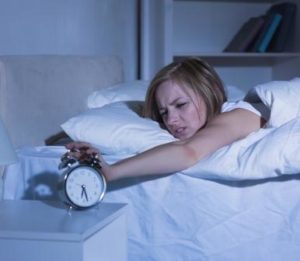
Flinders University sleep researchers are taking research conducted in Adelaide schools to the next level by intensively studying individual sleep troubled teens in a new study at the Child & Adolescent Sleep Clinic at the University’s Bedford Park campus.
The new research, which follows studies published in SLEEP in 2011 and Sleep Health in 2015, aims to find out if light centred treatment can make the difference between long, restless nights and a good night’s sleep.
Flinders University’s Associate Professor Michael Gradisar, who is leading the study, said the project was unique not only because it focusses primarily on light therapy, but because it would involve working closely one-on-one with teens with delayed sleep patterns and their parents.
“The larger scale school education trial attempted to translate what we do in the clinic to a broader population of teenagers, whereas the clinical trial we’re performing is specifically tailored to those teenagers who have a more severe sleep problem,” said Associate Professor Gradisar.
“The current treatment program is an extension of a previous randomised controlled trial we published in SLEEP in 2011, where we provided cognitive-behaviour therapy plus bright light therapy – except this time we are focussing on light therapy to see if that is enough.
“Some new research out of Norway suggests that teenagers with delayed sleep patterns underperform at school, or cannot even attend school, and we’re also learning that red light therapy might be useful for these teenagers too.
“So far, although the study is still underway, this seems to be a promising treatment and we’re keen to help as many teenagers with these difficult sleep patterns as possible.”
Click here for more information about this new treatment for sleep troubled teens.
Re-Timer, which is worn like a pair of sunglasses, emits a soft, UV-free green light onto the eyes to stimulate the part of the brain responsible for regulating the 24-hour body clock, making it easier to fall asleep at night and wake in the morning.
Launched in 2012 following 25 years of sleep research at Flinders, the portable device can also counter jet lag, keep shift workers more alert and get teenagers out of bed by advancing or delaying the sleep-wake cycle.
Click here for more information or to purchase the Re-Timer.

